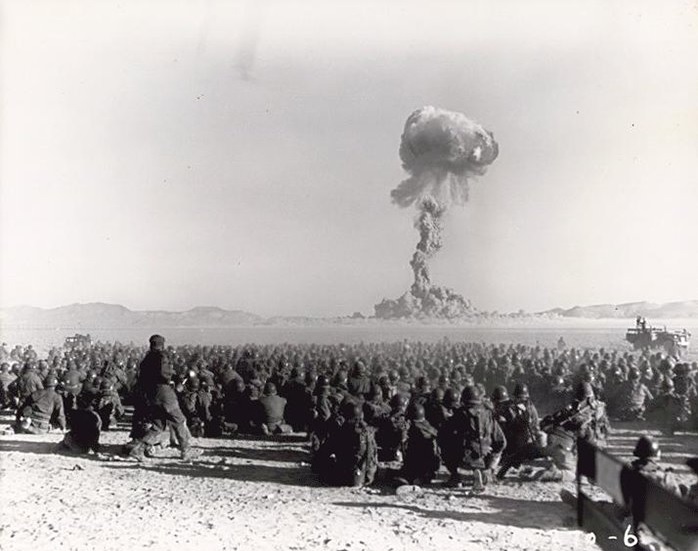The fastest manmade object isn’t a hypersonic jet or spacecraft, but a large manhole cover…. When the US started doing underground nuclear testing, nobody really knew what would happen. One test bomb was placed at the bottom of a 485-foot deep shaft on July 26, 1957, and someone thought it was a good idea to put a half-ton iron manhole cover on top to contain the explosion. The bomb turned the shaft into the world’s largest Roman candle, and the manhole cover was nowhere to be found. Robert Brownlee, an astrophysicist who designed the test, wanted to repeat the experiment with high-speed cameras so he could figure out what happened to the cover. So another experiment was created, this time 500-feet deep, and a similar half-ton manhole cover was placed on top. On August 27, 1957, they detonated the bomb. The high-speed cameras barely caught a view of the cover as it left the top of the shaft and headed into oblivion. Brownlee used the frames to calculate the speed to be more than 125,000 miles per hour…. more than five times the escape velocity of the Earth, and the fastest man-made object in history.Physicists have debated the whereabouts of the two manhole covers ever since. Recently, with the help of supercomputers and a lot more scientific knowledge, physicists are certain that they wouldn’t have had time to burn up completely before exiting the atmosphere. This means both of the remaining pieces would have passed Pluto’s orbit sometime around 1961 and are way beyond the edge of the solar system by now.
Tom Selleck oil painting. High gloss deep varnish over hand painted oils by David Kent Warshavsky Art

